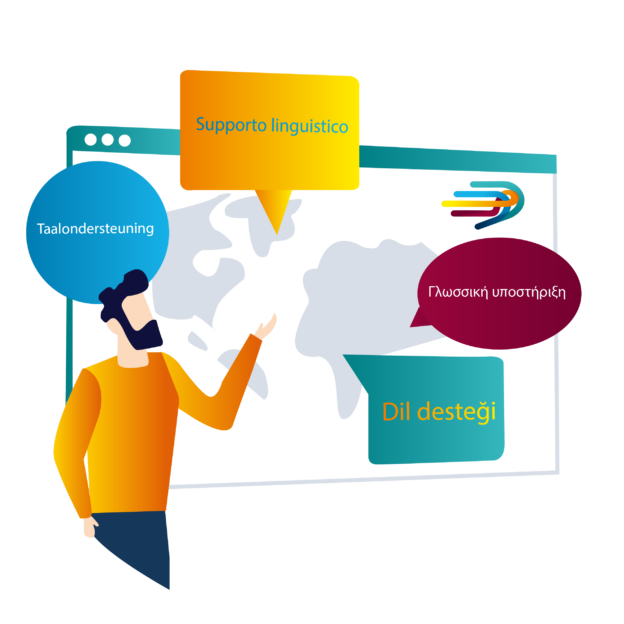Bibliography:
- Cummins’Iceberg Therory https://www.clilmedia.com/how-bics-and-calp-cummins-influence-your-role-as-a-clil-teacher/
- CUMMINS J., The Influence of Bilingualism on Cognitive Growth : A Synthesis of Research Findings and Explanatory Hypothesis, in « Working Papers on Bilingualism », 1976 : 9
- CUMMINS J., Cognitive/ Academic Language Proficiency, Linguistic Inerdepedence, the Optimum Age Question and Some Other Matters, in « Working Papers on Bilingualism », 1979 : 19.
- ELLIS R., Understanding Second Language Acquisition, Oxford University Press, Oxford, 1985.
- Maria Frigo, Lingua della socializzazione e lingua dello studio - Approcci didattici, percorsi per gli studenti, materiali e risorse, Atti del corso di formazione L’italiano L2 per le discipline, Bologna 2006/07 https://www.iprase.tn.it/lingua-2-per-lo-studio-e-il-successo-scolastico https://www.iprase.tn.it/alfabetizzazione-in-lingua-2
- Facilitare e semplificare libri di testo. Adattare contenuti disciplinari per l'inclusione, Carlo Scataglini, Erikson,2017
- Chi insegna che cosa a chi? I modelli didattici e il mestiere dell’insegnante, Guido Armellini in 1 In Fabio Camponovo, Alessandra Moretti, Didattica ed educazione linguistica, Quaderni del Giscel, La Nuova Italia, Firenze, 2000: 77-95.
- Le sfide di Babele, insegnare le lingue nelle società complesse, Uter Università Glottodidattica, 2015
- Immersion by Richard Levien - Ninth Annual Media that Matters Film Festival –Immigration Award : https://www.youtube.com/watch?v=I6Y0HAjLKYI&t=13s
- Project ENSEMBLE Empower Migrants and local economies – Country Fiches: https://www.projectensemble.eu/country_fiches.php?lang=EN
- BYRAM M., Teaching and Assessing Intercultural Communicative Competence, Multilingual Matters, Clevedon, 1997.
- CALLA (Cognitive Academic Language Learning Approach, cfr. O’ Malley e Chamot, 1990: https://rmqasim.wordpress.com/literature-review-2/2-2-3-cognitive-academic-language-learning-approach-calla-model/
- How to Overcome Cultural Barriers : https://www.wikihow.com/Overcome-Cultural-Barriers
- Teaching resources on Wordwall: https://wordwall.net/it/resource/18703808/matching https://wordwall.net/resource/2888174/vocabulary/things-in-a-classroom
- SKUTNABB-KANGAS T. e TOUKOMAA P., Teaching Migrant Children’s Mother Tongue and Learning the Language of the Host Country in the Context of the Socio-cultural Situation of the Migrant Family, Helsinki, Finnish National Commission for UNESCO, 1976.

Login
Accessing this module requires a login. Please enter your credentials below!


